Continental
Feminism Reader
Continental
Feminism Reader
Edited by
Ann J. Cahill and Jennifer Hansen
ROWMAN & LITTLEFIELD PUBLISHERS, INC.
LanhamBoulderNew YorkOxford
ROWMAN & LITTLEFIELD PUBLISHERS, INC.
Published in the United States of America
by Rowman & Littlefield Publishers, Inc.
A Member of the Rowman & Littlefield Publishing Group
4501 Forbes Boulevard, Suite 200, Lanham, Maryland 20706
www.rowmanlittlefield.com
PO Box 317
Oxford
OX2 9RU, UK
Copyright 2003 by Rowman & Littlefield Publishers, Inc.
All rights reserved. No part of this publication may be reproduced, stored in a retrieval system, or transmitted in any form or by any means, electronic, mechanical, photocopying, recording, or otherwise, without the prior permission of the publisher.
British Library Cataloguing in Publication Information Available
Library of Congress Cataloging-in-Publication Data
Continental feminism reader / edited by Ann J. Cahill and Jennifer Hansen.
p. cm.
Includes bibliographical references.
ISBN 978-0-7425-2309-8
1. Gender identity. 2. Sex differences (Psychology) 3. Feminism. I.
Cahill, Ann J. II. Hansen, Jennifer.
HQ1075.C668 2003
305.3dc21
2002151583
Printed in the United States of America
 The paper used in this publication meets the minimum requirements of American National Standard for Information SciencesPermanence of Paper for Printed Library Materials, ANSI/NISO Z39.48-1992.
The paper used in this publication meets the minimum requirements of American National Standard for Information SciencesPermanence of Paper for Printed Library Materials, ANSI/NISO Z39.48-1992.
In memory of Teresa Brennan
Contents
Ann J. Cahill and Jennifer Hansen
Ann J. Cahill
Judith Butler
Ann J. Cahill
Rosi Braidotti
Jennifer Hansen
Teresa Brennan
Teresa Brennan
Jennifer Hansen
Kelly Oliver
Kelly Oliver
Jennifer Hansen
Drucilla Cornell
Jennifer Hansen
Teresa de Lauretis
Ann J. Cahill
Moira Gatens
Moira Gatens
Ann J. Cahill
Elizabeth Grosz
Acknowledgments
Ann J. Cahill would like to thank the following for their support of this project: Steven House, Dean of the Elon College of Arts and Sciences at Elon University; Andy Villwock, for his valuable research assistance; the ever-nurturing community that is the philosophy department at Elon University; and the concentric circles of family and friends that begin with Neil Koehler Swenson and extend so generously outward.
Jennifer Hansen would like to acknowledge: the Provosts Office at Gettysburg College for its generous institutional support; Steven Gimbel from the philosophy department at Gettysburg College for his energy and friendship; Lindsy Mayo, whose dedication to this anthology was essential to its coming into existence; and, finally, special thanks to Jessica Wahman for her friendship.
Both editors wish to express their deep thanks to the following individuals for their guidance, advice, and assistance in developing this volume: Kelly Oliver for inspiring the idea of this anthology; Serena Krombach, who was an excellent editor; and Kelly Rogers, for giving us much needed help with permissions.
Introduction
Ann J. Cahill and Jennifer Hansen
What Happened?
We live in an age of postfeminism, an age in which Roe v. Wade may very well be overturned before this book makes its way into classroom discussions of contemporary feminist theory. Daughters of second-wave feminists are writing books that claim that feminists are fascists (Roiphe 1994). A book claiming that feminism is waging a war against boys is a bestseller (Hoff Sommers 2000). Young women are being told to stop whining about date rape, admonished to loosen up, to let go of that archaic Victorian prudishness, sit back, relax, and just enjoy it. Young women are claiming that affirmative action is reverse discrimination and that feminists are manhatersclearly, we are witnessing the retrenchment of feminist gains. What happened?
In the 1960s and 1970s, women marched for equality: equal pay for equal work, equal access to institutions, equal respect for their autonomy. Womens studies departments emerged and began to scrutinize the most personal aspects of womens lives in order to expose their inherent political nature. Women began to enter professions formerly closed to them and began to choose who to marry, when to marry, and when to get pregnant. Women gained power and political voice. So how is it that we now find ourselves once again in an age of antifeminism? How can we both have female politicians, attorneys, CEOs, university professors, physicians, and financial advisors and a political climate that protests feminist claims? How can we have had a Democratic president who destroyed AFDC?
Feminism is in a crisis. The analyses, proposals, and political actions women made have failed to significantly purge the patriarchal basis of American society. In demanding equality, we often overlooked crucial questions: equal to whom? Equality on what basis? And how are we to deal with the differences among women and the relevance of those differences to social and political equality? Our theoretical tools, perhaps, were not sharp enough for such difficulties, and so we find ourselves in search of new and better ones.
In fact, those newer theoretical tools are being developed. Contemporary continental feminist theory in particular continues to address pressing questions of equality and difference, identity and subjectivity, often bringing to bear strikingly new perspectives on sex, gender, sexual politics, and the various social apparatuses that underlie gender inequality. Yet these new theories are not always well received and are often rejected in popular presses and academic journals for failing to be sufficiently political. We have assembled this volume in response to the marginalization of these theorists, who are often underrepresented in traditional womens studies programs and the material published by leftist presses. We hope to render their work accessible to an audience larger than the particular philosophical circles from within which they have emerged. The persistent dismissal of this body of work is grounded, we believe, in a host of misunderstandings concerning its content, history, and political relevancemisunderstandings that we hope this volume will serve to correct. Because these thinkers have significant contributions to make to both feminist theory and practice, feminist theory as a whole cannot afford to lose their insights.
We have consciously chosen to refer to these philosophers as Continental feminist theorists rather than the more familiar category of postmodern feminists. In the current philosophical community, that label is often tantamount to the very dismissal that we seek to challenge: postmodern is all too readily associated with irrationalism, quietism, and perhaps even evil, associations that we will discuss in greater detail below. The term Continental not only avoids these connotations, but also more accurately reflects the philosophical tradition upon which these theorists build their work.
Before addressing the specific theories of the contributors to this volume, then, we must turn our attention to the tradition that problematically grounds them. Closer examination will demonstrate that, as with many foundations, it is difficult to sum up or narrate. What follows, then, is a necessarily brief (and not necessarily purely objective) narrative of the origins and orientations of Continental thought, and, to a lesser extent, the differences between it and analytic philosophy. The cursory treatment this topic will receive here should only serve to gesture toward its complexities and inherently unruly nature. Nevertheless, even a cursory treatment will clarify the philosophical and political implications of these admittedly intricate theories, and we hope that this condensed history will prove both accessible and informative to readers new to this most promising tradition.
Next page

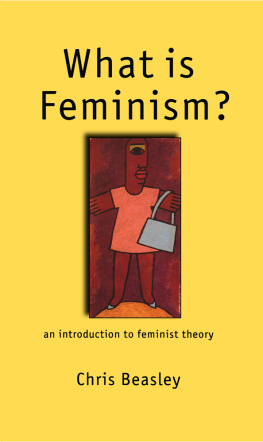
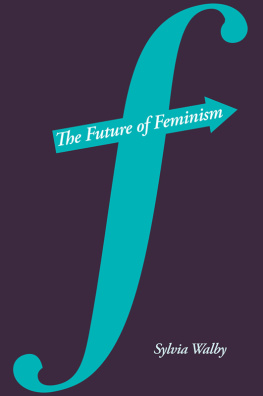
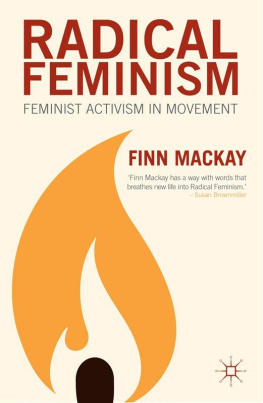
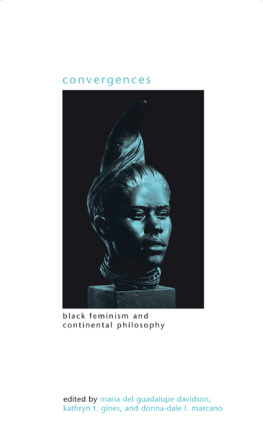
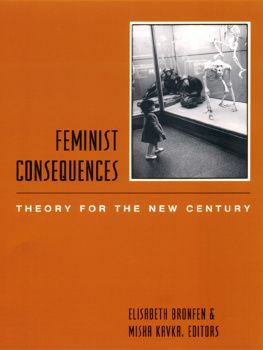
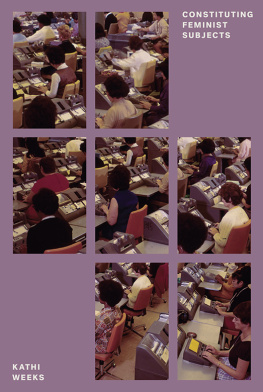
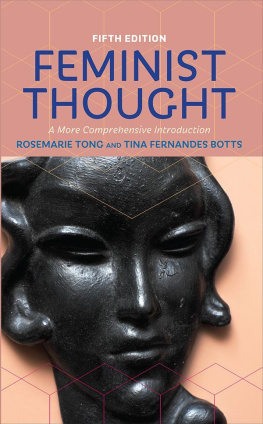
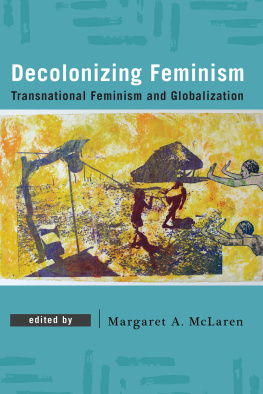
 The paper used in this publication meets the minimum requirements of American National Standard for Information SciencesPermanence of Paper for Printed Library Materials, ANSI/NISO Z39.48-1992.
The paper used in this publication meets the minimum requirements of American National Standard for Information SciencesPermanence of Paper for Printed Library Materials, ANSI/NISO Z39.48-1992.